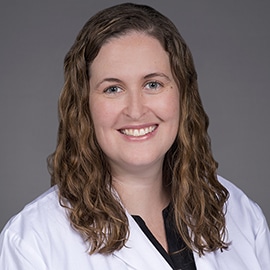
Have you experienced an urgent or frequent need to pee? Have you noticed a vaginal bulge, “dropping,” or pressure? Have you leaked urine on yourself when you exercise or laugh with friends? Have you leaked urine or stool on yourself while trying to make it to the bathroom?
These can all be symptoms of pelvic floor disorders. One in four U.S. women have at least one pelvic floor disorder.1 By 80 years old, half of all women will experience a pelvic floor disorder. But you don’t have to live with these symptoms; there are ways to correct or manage these problems with the help of a urogynecologist.
Urogynecologists are also called Female Pelvic Medicine and Reconstructive Surgeons. A urogynecologist is a specialist who has added years of training and certification in women’s pelvic floor disorders after completing training in either gynecology or urology (totaling seven years of training after graduating from medical school). Board certification in Female Pelvic Medicine and Reconstructive Surgery means the physician has passed a special exam from a licensing board such as the American Board of Obstetrics & Gynecology (ABOG).
A urogynecologist’s additional training focuses on helping women with urinary incontinence; prolapse of the vagina and/or uterus; fecal incontinence; fistulas; and the need for specialized vaginal/pelvic surgery. These pelvic floor disorders can occur when there has been injury, weakness or tears in the pelvic muscles and connective tissue.
There are many life events that can cause pelvic floor disorders in all ages of women. Some risk factors for pelvic floor disorders include childbirth, repeated strenuous activity, aging, tobacco use, genetics, obesity and prior pelvic surgery.
Many people may confuse a urogynecologist and a gynecologist. A gynecologist treats women’s health issues such as pregnancy, fertility problems and menopause while a urogynecologist focuses on pelvic floor disorders, prolapse and incontinence. Gynecologists perform annual well-woman exams and general women’s health; urogynecologists focus on specialized evaluation and management of pelvic floor disorders.
Treatment for pelvic floor disorders can range anywhere from simple lifestyle changes to surgeries. Nonsurgical treatments can include pelvic floor exercises, referral to a physical therapist, injections or medication. Surgical treatment can range from simple short procedures to larger reconstructive surgeries. Most surgery patients can go home on the same day of surgery.
If you think you could benefit from seeing a urogynecologist, make an appointment.
UofL Health has two Urogynecology offices – one at the Springs Medical Center in St. Matthews (where I am located) and one at the new UofL Health – Mary & Elizabeth Hospital – Center for Women’s Health. Give us a call to schedule your appointment.
UofL Physicians – Urogynecology
Springs Medical Center
6420 Dutchmans Parkway, Suite 190
Louisville, KY 40205
502-588-7660
UofL Physicians – Urogynecology Associates
UofL Health – Center for Women’s Health
Mary & Elizabeth Hospital, Plaza 4
4331 Churchman Avenue
Louisville, KY 40215
502-977-5907
Reference:
1 Wu JM, Vaughan CP, Goode PS, Redden DT, Burgio KL, Richter HE, Markland AD. Prevalence and trends of symptomatic pelvic floor disorders in U.S. women. Obstet Gynecol. 2014 Jan;123(1):141-148. doi: 10.1097/AOG.0000000000000057. PMID: 24463674; PMCID: PMC3970401.









